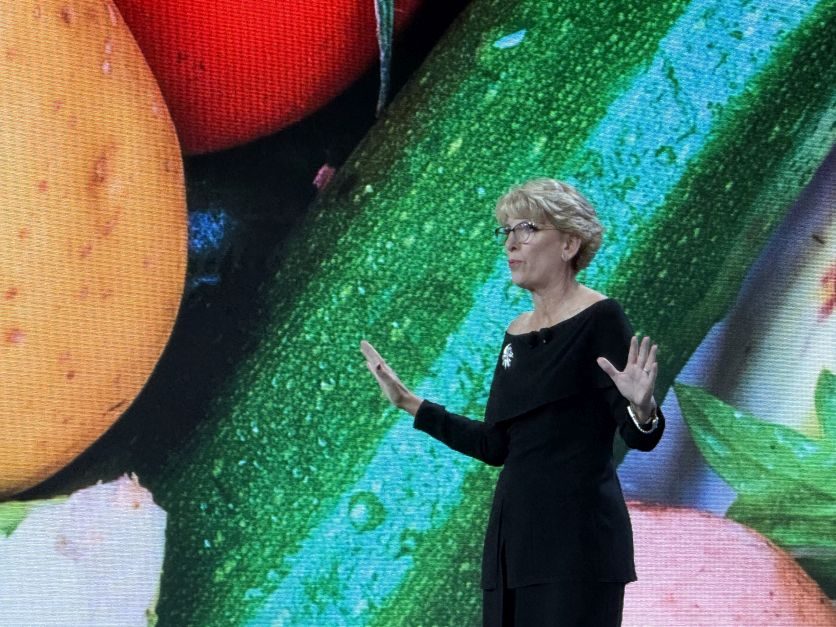Key Takeaways
- Tariffs and inflation continue to impact global produce trade, but fresh fruits and vegetables remain resilient in consumer purchases.
- IFPA is advocating for better farm labor policies, support for automation, and sustainable practices to enhance the industry’s future.
- Technological initiatives, including AI and improved supply chain frameworks, aim to boost efficiency and sustainability in the fresh produce sector.
Industry Advocacy and Challenges
The International Fresh Produce Association (IFPA) is intensifying its advocacy efforts amid ongoing challenges in the global produce industry, as highlighted by CEO Cathy Burns during the “State of the Industry” speech at the Global Produce & Floral Show in Anaheim. Key issues that persist include geopolitical risks, tariffs, inflation, and labor shortages.
Burns emphasized that tariffs significantly affect global trade, prompting IFPA’s Board of Directors to meet with U.S. Trade Representative Jamieson Greer and the National Economic Council to lobby for exemptions and trade policies grounded in science and transparency. Despite these challenges, she noted that consumer behavior shows a resilience towards purchasing fresh produce, with only 5% of consumers choosing to cut back on fruits and vegetables, even as 66% opt for smaller sizes of other food items.
Research from Nature indicates that imports of fruits and vegetables play a crucial role in reducing dietary risks and improving mortality rates related to non-communicable diseases, with an annual reduction of 1.4 million deaths globally. Burns aims to make this data clear to policymakers, emphasizing the vital role fresh produce plays in public health.
Labor and Automation Initiatives
Labor challenges in the farming sector have been exacerbated by rigorous enforcement actions across the U.S. IFPA is pushing for solutions that combine farm labor access and technological advancement, urging policymakers to make investments in automation. A recent legal victory against the Department of Labor’s H-2A regulations is expected to significantly benefit growers by easing wage-related burdens.
In collaboration with the Department of Homeland Security, IFPA has achieved clarity on enforcement policies regarding farm visits, which are now restricted to instances with active warrants. This assurance was personally conveyed to Burns by Secretary Chavez-DeRemer, whose communication has provided a foundation for improved relations between government agencies and the farming sector.
Technological Advancements
Burns expressed a strong interest in integrating artificial intelligence into the industry, highlighting its potential to enhance operational efficiency and promote proactive decision-making. The launch of a new tool that offers members access to a wealth of industry and consumer research underscores this adaptable approach.
Additionally, IFPA introduced the “Supply Chain of the Future” initiative designed to streamline costs and improve supply chain efficiency through new methodologies, focusing on key areas such as shelf-life predictability and smart data systems.
Sustainability and Food Safety
Sustainability remains a primary focus, with IFPA advocating for practices that benefit both the environment and the consumer. The organization is preparing to roll out a global sustainability framework next October, following their engagement at COP30 in Brazil.
Food safety has also been prioritized as climate change presents new risks. Ongoing developments in AI technology are expected to enhance safety measures, addressing consumer concerns—58% of the global market shows high apprehension regarding food safety.
Lastly, IFPA has championed the inclusion of produce prescriptions in health and nutrition initiatives, urging the Department of Health and Human Services to recognize these programs as supplemental benefits for Medicare Advantage, promoting higher consumption of fresh fruits and vegetables.
The IFPA’s advocacy and strategic initiatives reflect a commitment to navigating current challenges and promoting the vital importance of fresh produce in health and sustainability.
The content above is a summary. For more details, see the source article.















